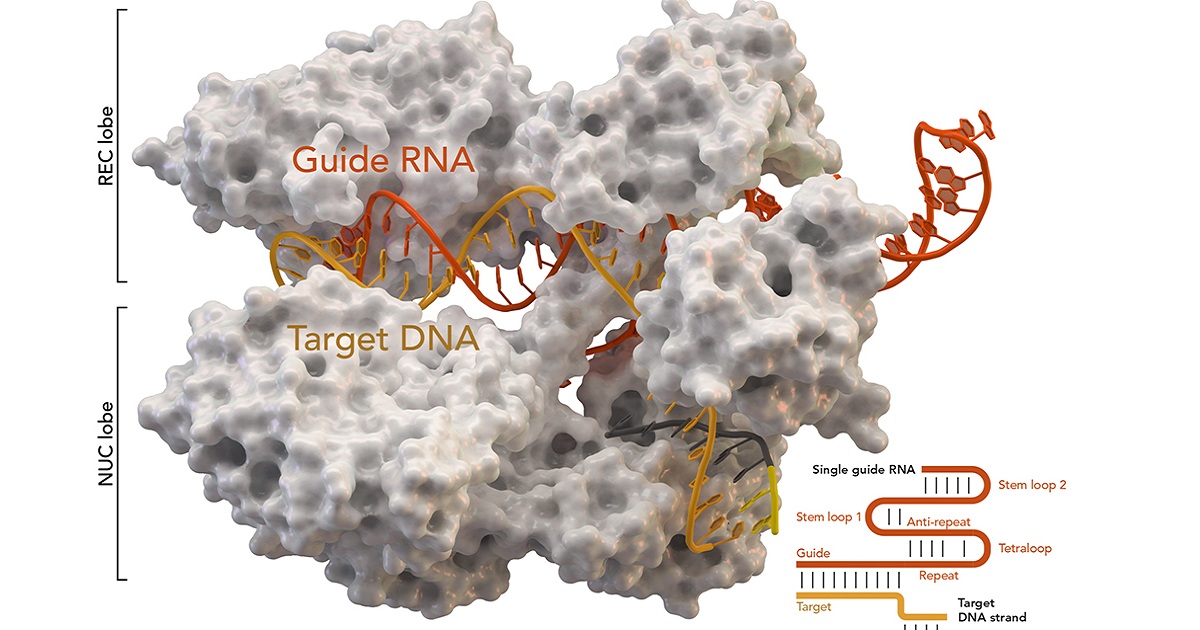New anti-CRISPR proteins discovered in soil and human gut
Phys.org | February 06, 2019

Scientists from the Novo Nordisk Foundation Center for Biosustainability (DTU) have found four new anti-CRISPR proteins that are distributed across different environments. The new study published in Cell Host & Microbe suggests that some anti-CRISPR proteins are more widespread in nature than previously anticipated. This anti-CRISPRs can potentially be used to regulate the activity of CRISPR-Cas9 systems better in the future. CRISPR systems are bacterial immune systems that enable the bacterium to fight off infecting viruses (phages) in a targeted manner.
Due to their programmable nature CRISPR systems, and in particular Cas9, are currently being widely deployed in the life science industry with the potential to deliver breakthrough gene therapies, new antibiotics, and malaria therapies. Interestingly, phages have evolved anti-CRISPR proteins to overcome bacterial CRISPR systems in the evolutionary arms race between viruses and bacteria. These proteins quickly inhibit the host bacterium's defense system leaving the bacterium vulnerable to infection. In spite of their significant biological importance, only a few anti-CRISPR proteins have been discovered so far in a very specific subset of bacteria. Current anti-CRISPR proteins are not abundant in nature and have been identified by studying the DNA of the phages that were able to infect bacteria harboring CRISPR-Cas9. Using this method, one relies on being able to culture bacteria and on phages that are able to infect and avoid the surveillance of the endogenous CRISPR Cas9-system.